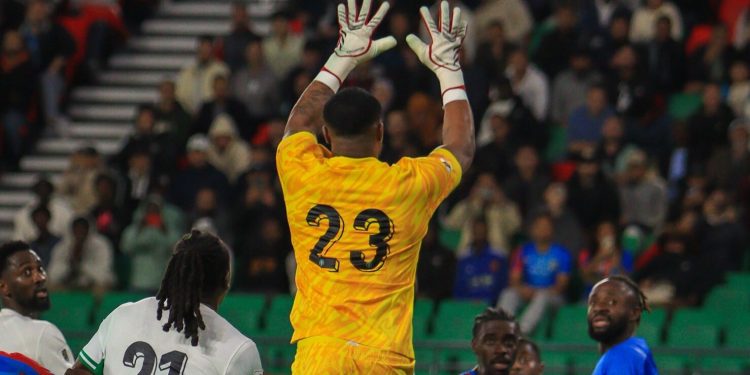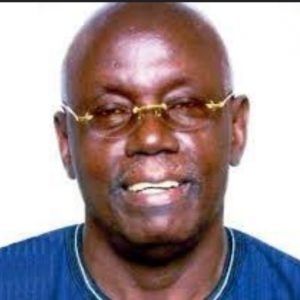Just months ago, Nigeria’s hopes of reaching the 2026 FIFA World Cup looked buried beneath poor form, chaotic transitions, and dwindling belief.
Yet the Super Eagles clawed their way back into relevance, fought through turbulence, and muscled themselves into the playoff final where one ticket; Africa’s lone intercontinental playoff spot awaited.
But in Rabat on Sunday night, the journey ended in heartbreak.

Nigeria drew 1–1with DR Congo, then fell 4–3 on penalties, ending a World Cup pursuit that had demanded sweat, grit, and fragile hope.
It was the kind of night that begins with promise, steadies the nerves, and slowly unravels into a painful reveal; a mirror showing everything the team had tried to hide.
To understand the collapse, we must examine the cracks that split open at the worst possible time, and the wider context of a football nation now staring at a 12-year World Cup absence.
The takeaways: How Rabat exposed Nigeria’s deepest fault lines
Lookman & Chukwueze: When rust became a liability
Chelle gambled on both wingers again after they struggled against Gabon. The result? Two anonymous shifts.
Lookman misplaced passes, failed to beat his man, and disrupted attacking flow. Chukwueze contributed even less, offering no penetration and leaving Fredrick exposed defensively on the break on multiple occasions. DR Congo targeted Nigeria’s right flank repeatedly, exploiting Chukwueze’s poor positioning.
By the time both were substituted early in the second half, the damage was irreversible. The Super Eagles played without width, creativity, or tempo, three pillars of their identity.
Nwabali: Hero in the shootout, Question mark in open play
He has had strong moments for Nigeria, but this match revealed the gap between “good” and “elite.” A top-tier African team cannot gamble on a goalkeeper whose confidence fluctuates wildly within 90 minutes.
His errors, nervous handling, and unpredictable decisions nearly cost Nigeria the game before penalties decided it.
If he remains first choice, tactical restrictions must follow. Nigeria cannot enter the next cycle one mistake from disaster.
Second-Half collapse: A team that lost its grip
The shade of the first half disappeared with Osimhen. Suddenly, Nigeria couldn’t press. Couldn’t transition. Couldn’t keep the ball.

DR Congo seized the entire midfield. Removing Alex Iwobi worsened Nigeria’s structural collapse. Chidera Ejuke added little. Ironically, keeping Chukwueze on might have offered a bit more balance without Iwobi on it.
The second half was defined by panic clearances, broken shape, and a total loss of composure.
Without Osimhen, Nigeria lost Its identity
His absence revealed a devastating truth: Nigeria have no functioning Plan B. Even with two strikers on the pitch, the team had no focal point, no press trigger, no structure.
Chelle has built a system dependent on one man. Without Osimhen, the team’s identity evaporates; tactically, psychologically, emotionally.
Not inviting Paul Onuachu now looks like a mistake. Nigeria needed variation. They brought none.
![Penalty Pain, Structural Failure: Rabat Exposes the Super Eagles’ Deepest Cracks, Hard Truths We Can’t Ignore 3 Bassey and Ajayi both missed their kicks [Credit: Super Eagles Media]](https://i0.wp.com/media.premiumtimesng.com/wp-content/files/2025/11/1002043519-scaled.jpg?resize=1707%2C2560&ssl=1)
Twelve years and counting: Nigeria’s World Cup void deepens
From Russia 2018 to Morocco 2030. That gap will define a generation. By the next qualifiers, many key players; Simon, Ajayi, Bassey, Nwabali, even Osimhen, will be beyond their peak.
For a nation of Nigeria’s pedigree, this is not a failure. It is a collapse. A structural, administrative, and sporting implosion years in the making, now fully exposed.
The big picture; where does Nigeria go from here?
Nigeria’s outing in Rabat wasn’t just a defeat. It was a diagnosis. The Super Eagles didn’t lose because of a shootout. They lost because the foundation was already cracked.
The challenge now is not healing the wound, it is building a new identity. A younger spine exists. A new generation is emerging. But legacy; the kind Nigeria used to own, demands structure, planning, and courage.
Because World Cups do not wait, and football nations evolve fast. Nigeria must evolve faster.
Stay ahead with the latest updates!
Join The Podium Media on WhatsApp for real-time news alerts, breaking stories, and exclusive content delivered straight to your phone. Don’t miss a headline — subscribe now!
Chat with Us on WhatsApp







